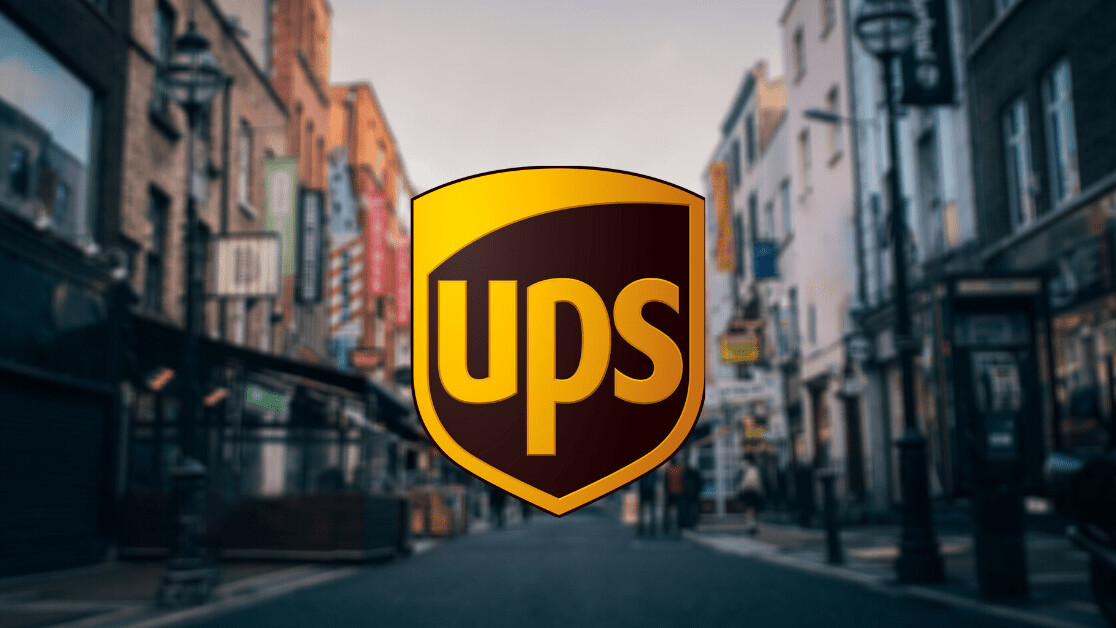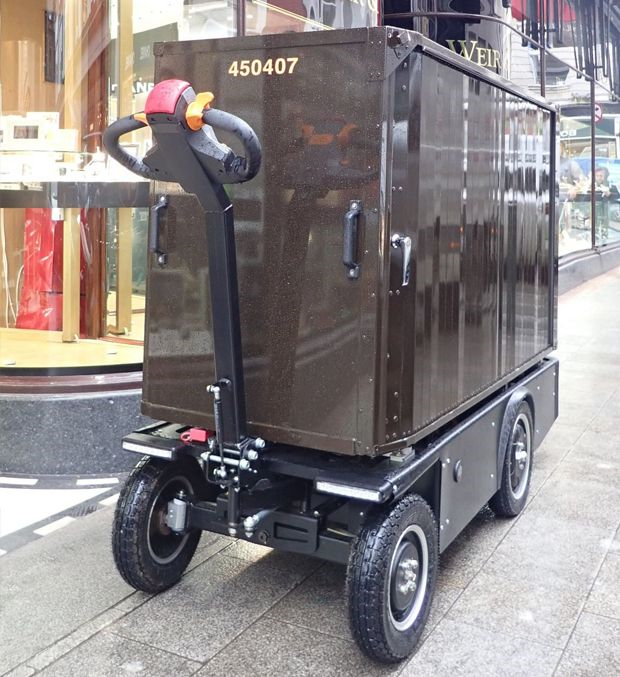
This article was originally published by Sarah Wray on Cities Today, the leading news platform on urban mobility and innovation, reaching an international audience of city leaders. For the latest updates follow Cities Today on Twitter, Facebook, LinkedIn, Instagram, and YouTube, or sign up for Cities Today News.
Dublin is trialling mini urban distribution centers and powered walkers and quad cycles to enable city centre deliveries that don’t contribute to local emissions or congestion.
The pilot is funded by Dublin City Council, Enterprise Ireland and Belfast City Council and the system was developed as part of a Small Business Innovation Research (SBIR) challenge, which sought new approaches to optimizing deliveries.
Through this, design and manufacturing consultancy Fernhay developed the containers, bikes and walkers for global logistics carrier UPS to trial. The vehicles will enable workers to deliver goods such as groceries, medicine and parcels.
The hubs take in consignments and redistribute them for delivery using removable containers. With two of these mini distribution centres now up and running in Dublin, UPS says it has removed five diesel vehicles from the road, reducing carbon emissions by up to 45 percent.
Owen Keegan, Dublin City Council Chief Executive, said: “Collaboration is key to tackling the challenges facing our city right now so we are very happy to see our transportation department and smart city program working with innovative partners such as Fernhay and UPS to address last-mile deliveries. This solution helps the city adapt to the COVID-19 situation by enabling foot and bike deliveries and discouraging the return of congestion.”
Reimagining the last mile
A January World Economic Forum report forecast that the number of delivery vehicles in the world’s largest cities will increase 36 percent by 2030, resulting in a 32 percent rise in emissions from delivery traffic and a 21 percent increase in congestion. Since then, online shopping and food deliveries have surged during the pandemic and could change retail trends in the longer-term.
Peter Harris, UPS International Sustainability Director, said: “This is about reimagining last-mile logistics. Cities need solutions that eliminate emissions and congestion and this system achieves that. But it goes further. The ability to load the box that the eWalker and the eQuad carry anywhere within our network will help UPS operate more efficiently. Taking this concept of removable containers, long since practiced in long haul freight, into the urban environment is a game-changer and furthers UPS’s long-standing commitment to bring its customers sustainable solutions.”
Dublin could expand the trial to other operators and Belfast will follow the pilot to assess the possibility of rolling out a similar system.
Get the TNW newsletter
Get the most important tech news in your inbox each week.






